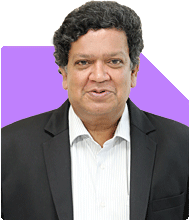
I am 43 years old married man, arranged marriage. Married for past 13 years with 4 kids (aged 2, 3, 10 and 13). I work abroad with good salary package and live with my family. My wife is MSc. and home maker. She teaches the kids and cooks and takes good care of kids. I am academic research scholar. From the start of our marriage, I noticed my wife does not open much and moderate religious person. I am also not very extrovert person. I work from 8 am to 5 pm in office which is walkable distance from my house. After coming from office, I help her in kichen daily, look after the kids, help kids in math, clean the house, put the yougest kid to sleep, then I get some 'me' time which happens only after 11:30 pm in the night. I dont use phone untill everybody is sleep or my kids dont allow me to use phone while i am playing with them. Now sometimes I feel we are just room mates with 1-2 times sex in a month. In terms of love with my wife, I initiate all the time, she never expresses love. I am not very possessive kind of person. She does not show any interest in my work and never ask me hows my day etc. She only smiles and rarely laught. I thought may be it will improve with time. There is no money issue, she buys what ever she likes. She has her own card and I provide extra money if she asks. I assumed may be she does not like me from the beginning but staying in marriage due to family pressure and kids. I am average looking person and dont accept everything what she says in terms of investment, holiday etc. I had accepted my fate. She started doing book writing and publishing online and now earning and keeping separate account, She is very excited about it and feels happy and shares with me the publication but not the earnings. I give suggestions and money what ever she asks for marketting and promotion etc. I am happy for her. Recently I came across an email in her phone which was from her ex. There was a long deleted chat, in summary they were madly in love but could not get married, i dont know the reason or even she never spoke about him. they kept chatting even after our marriage. Her ex got married and divorsed with one grownup kid. He is single and work abroad in a different country with good salary package (may be better than mine). She emailed him after long time I guess but now she is secretly chatting with him very often. she keeps her phone locked and deletes the chats. He is also interested and asking her to leave and marry him. She is not saying yes to him but regrets that she married me. At this point I dont know if I should talk to her regarding this but she will definitely be upset to know i checked her phone. Few years back we had a major fight (that time i didnot know about her ex), i had proposed for divorse and settle it mutually if she is not happy with me but she denied and stayed. I dont know what I should do to make her happy. we both are from very respected family in the society and I dont know if her parents knew about her affair. Even though she is chatting with him but she behaves very normal with me, no fight no argument, as if nothing is happening. I dont know whats in her mind, is she just casually chatting with him or buying time, waiting for the right moment to leave? Shall I file for divorse or accept my fate as room mates. Am I worrying too much?
Ans: First, let me say this clearly: you are not worrying “too much.” Your concerns are valid. When emotional connection, affection, and curiosity about each other’s inner worlds are absent for years, and when secrecy enters the relationship, it naturally shakes trust. The fact that she is emotionally engaging with a past love, hiding communication, and expressing regret about marrying you — even if not directly to your face — is not a small or harmless thing. It doesn’t automatically mean she will leave, but it does mean there is unresolved emotional business that cannot be ignored.
At the same time, it’s important not to jump straight to extremes like divorce or silent resignation. Right now, the most important thing is clarity — for you and for her. Living as silent roommates while carrying this knowledge will slowly erode your self-worth and peace of mind. You deserve honesty, and your marriage deserves a chance to be examined truthfully, not just maintained for appearances, family reputation, or routine.
If you choose to speak to her, the way you approach it will matter far more than the fact that you looked at her phone. Try not to lead with accusation or surveillance. Lead with your emotional reality. You can say something like: you’ve been feeling emotionally distant for a long time, you feel you’re always the one initiating closeness, and recently you’ve felt even more unsettled and insecure about where you stand in her life. You don’t need to reveal every detail of what you saw immediately; the goal is to open a conversation about emotional honesty, not to trap her in a confession.
Pay close attention to how she responds. Not defensiveness alone, but whether she shows willingness to reflect, to talk about her inner world, and to consider rebuilding emotional intimacy with you. A marriage can sometimes be repaired even after emotional betrayal — but only if both partners are willing to be transparent and actively work on reconnecting. If she avoids the conversation, minimizes your feelings, or continues secrecy, then you will have important information about where the marriage truly stands.
It’s also worth acknowledging something gently but honestly: your wife may have spent years emotionally closed not because of you alone, but because she never fully processed the loss of that earlier relationship. Her recent independence and success may have stirred unresolved emotions and old longings. That explains her behavior, but it does not justify secrecy or emotional infidelity. Understanding this can help you speak with compassion without sacrificing your boundaries.
Before making any legal decisions, I strongly encourage you to consider couples counseling, ideally with someone experienced in long-term marriages and emotional affairs. A neutral space can help both of you speak truths that feel too risky at home. It will also help you understand whether she wants to stay and rebuild, or whether she is emotionally preparing to leave.
As for “accepting your fate,” I want to be very clear: accepting a life where you feel invisible, undesired, and emotionally alone is not a virtue. It is a slow form of self-erasure. Your children benefit most not from parents who silently endure, but from adults who model honesty, self-respect, and emotional responsibility.
You don’t have to decide everything right now. But you do need to stop carrying this alone. The next step is not divorce or resignation — it’s an honest, calm, courageous conversation focused on emotional truth. From there, the path forward will become clearer, even if it’s difficult.





























